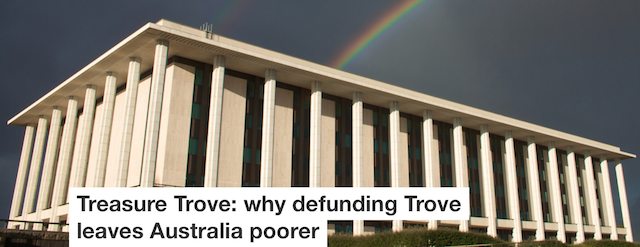By Maurie Mulheron
President New South Wales Teachers Federation
 |
| Newcastle East Public School – 200 Years |
On a hill, there sits a school.
In the school grounds there is a large, circular concrete pad into which 17 small bronze stools are cemented. Each of the stools is unique. They represent roughly-hewn wooden seats on which infants might have sat.
This beautiful sculpture, which now sits surrounded by a native garden, was created by artist Heather Swann.
I visited the school recently on a Saturday afternoon. Having climbed to the top of the steep hill, I noticed a large crowd gathered in the school grounds, spilling onto the pavement. I looked over at the sculpture and noticed that each bronze stool was occupied by a small child.
Everyone was listening to the principal, John Beach, welcoming the local community to the school before introducing the guest speaker, former prime minister, Julia Gillard.
The occasion was the launch of To Climb the Hill: A People’s History of Newcastle East Public School 1816–2016. The sculpture had been commissioned to coincide with the launch.
The school is celebrating its 200th anniversary as the oldest school in continuous operation in Australia.
The book makes for fascinating reading. Sure, there are the stories of famous Australians who attended the school, such as Ben Lexcen and Miranda Otto, but it was the story of the first teacher and his 17 pupils that captured my attention.
The teacher’s name was Henry Wrensford and, in 1816, Governor Macquarie appointed him to the position of schoolmaster of the Public Charity School that had just been established in the open-air prison of Newcastle. Wrensford was one of 35 schoolmasters teaching in the colony of New South Wales.
Wrensford had been convicted in Central London in 1812 of fraud and, after a year on a rotting hulk in the Thames, had been transported. He was 26 years old when he arrived.
Macquarie, in need of teachers, granted Wrensford a conditional pardon and appointed him schoolmaster. His qualifications at the time were his middle-class background and the elementary education he had received.
Newcastle’s population in 1816 was made up of about 300-400 convicts and soldiers. Wrensford’s status as a pardoned convict and schoolmaster meant he had a relatively privileged life compared to the dirty and dangerous work of the other convicts who were involved in cedar-felling, coalmining and the lime-burning of oyster shells.
He would have arrived at the school, then a slab hut, clothed in a military uniform. His pay would have been rations and free accommodation.
The 17 pupils in his first class were the children of convicts, soldiers, the harbour pilot, and the surgeon. There were eight girls and nine boys ranging in age from three to 13 years. As was common practice at the time, the 13-year-old boy would have acted as the pupil-teacher.
The curriculum was basic and narrow, the four Rs: reading, writing, arithmetic and religion. After all, this school had been established by the Church of England and the teaching of the tenets of the Anglican religion dominated the school day. Indeed, by 1817, the school moved into the vestry of the newly-built Christ Church, where it remained for decades.
Discipline would have been tough and physical in this strict hierarchical military settlement and this was reflected in how children were treated. Macquarie had standards and rules for his schools. Any child engaging in “idle or wicked Habits at School” was to undergo corporal punishment or expelled.
In those days, schools were created to control the “unruly street urchins” and to provide them with an education in morals.
The school operated from nine to five each day with attendance at church on Sunday compulsory.
Wrensford eventually moved onto another school in 1820, a new private institution at Castlereagh, but he preferred to work at a government school and very soon afterwards became Public Schoolmaster at Airds, then a small settlement near Campbelltown.
The 17 children at the Newcastle Public Charity School might well have regarded themselves as fortunate as most children did not receive schooling and child labour was the norm.
Schooling in the colony was dominated in the early part of the 19th century by the four main religions, Anglican, Catholic, Methodist and Presbyterian. Fees were charged.
It was not until the late 1830s that Governor Bourke introduced the non-sectarian Irish National School system, open to children of all faiths. This would become the foundation for the public education system.
The Public Instruction Act of 1880 introduced free and compulsory elementary education for all children, effectively killing off child labour. As well, the Act ended state aid to church schools. The old school to which Henry Wrensford had been appointed was now incorporated into the new public education system.
As the history of Newcastle East Public School is revealed we can see how its fortunes also reflected the development of the public education system that exists today. Its various name changes reveal much:
1816 Newcastle Charity School
1818 Christ Church School
1867 Christ Church Certified Denominational School
1883 Newcastle East Christ Church Public School
1886 Newcastle East Public School.
The school is a proud reminder of the strength and traditions of the public education system. Yet it is also a reminder of the sectarianism and all-too-powerful influence of religion in schooling that exists in Australia to this day.
Newcastle East Public School is well worth a visit even if it is just to view the heritage-listed buildings from the street.
As we view the sculpture garden with the 17 brass stools on which the young pupils of today sit, we can reflect on the school’s humble origins.
To Climb The Hill: A People’s History of Newcastle East Public School 1816–2016 is available for purchase from Newcastle East Public School and is also available for borrowing from the Federation Library.



















